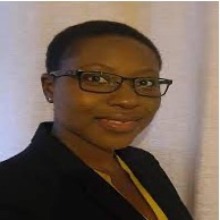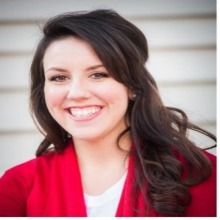MENTOR Institute Seed Grants 2022 Awardees
The MENTOR Institute is pleased to announce the first round of MENTOR Seed Grant Awardees. These seed grants are intended to stimulate the development of pilot projects that focus on developing research that will lead to evidence-based, inclusive, innovative, mentoring strategies. Pilot projects that have the potential to contribute to novel research approaches or to new funding opportunities are encouraged.
The three awardees are listed below with the title of the project and a brief description. We look forward to how their research helps increase understanding of mentoring best practices.

Brandy A. B. Perkl, Ph.D., Associate Professor of Practice
Organizational Leadership & Psychology, College of Applied Science & Technology
Co-Mentoring in Research Apprenticeships
Updated Project Report:
Our research focused on developing curricula for mentor professional development, specifically targeting various configurations of co-mentorship. We followed a multi-step informed process to ensure the development of high-quality curricula. First, Dr. Perkl obtained facilitator certification from CIMER, which allowed us to engage in discussions with a cohort of mentoring experts-to-be. After completing the training, we used the knowledge and insights gained from the cohort to inform an expert panel discussion. The one drawback of this informed process was it caused a slower timeline than originally proposed, and our work is incomplete - though ongoing and well supported to continue - at this time.

Angelina Anani, PhD, Associate Professor
Mining and Geological Engineering, College of Engineering
Engaged - Real Work Program
Updated Project Report:
CULTURALLY RESPONSIVE/INCLUSIVE MENTOR TRAINING
The research team conducted an online culturally responsive and inclusive mentor training to build and sustain the research-based mentorship faculty community. Led by Dr. Hennessey, we discussed culturally responsive mentoring, asset-based mentorship, and intersectionality. Using a Google Jamboard we collected information from faculty mentors on how to support them to better mentor students through undergraduate research. A takeaway from the training session was that faculty do not get support or training on being effective mentors.

Ashlee Linares-Gaffer, MS, RDN, FAND, Associate Professor of Practice
Nutritional Sciences & Wellness, College of Agriculture & Life Sciences
Mentoring to Increase Access to Professional Opportunities
Updated Project Report:
The Nutrition mentoring PODS program was launched in fall 2022 and delivered throughout the 2022-2023 school year. The project team met twice per month in the fall, and once per month in the spring. Project deliverables include a program workbook, and delivery of Cultivate Dietetics Networking Night. A total of 28 participants were engaged in the program, including 20 undergraduates, and 8 graduates. A professional team of mentors included 4 dietetics professionals working in Tucson, as well as 5 faculty members from the School of Nutritional Sciences and Wellness. Attendance at monthly mentoring meetings was higher in the fall semester when undergraduate participants were concurrently taking a 1 unit course called NSC 395B-Earning the RDN credential. Participation in monthly meetings decreased significantly during the spring semester, and the final April meeting was canceled due to poor attendance. Lessons learned from a mid-year focus group and informal feedback from students that would influence future offering of this program include: 1) Students are more likely to participate if the meetings are tied to a for-credit course option. 2) Students would like more frequent reminders of upcoming mentoring meetings. 3) Students and mentors suggested that they would like to be matched together based on shared professional interests.

